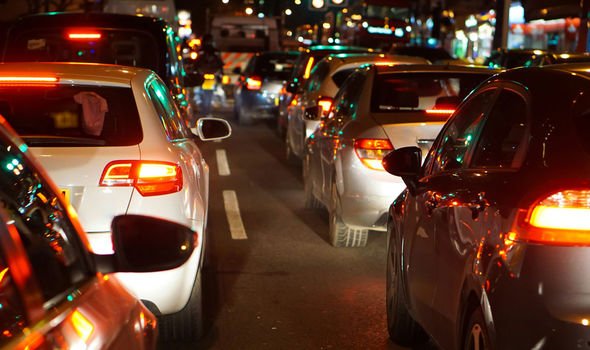In a bid to combat climate change and align with international standards, the UK government has announced a ban on the sale of new petrol and diesel cars and vans by 2035. This move, originally scheduled for 2030, aims to transition the country towards a greener future. In this comprehensive guide, we’ll delve into the details of the ban, its implications, and what it means for consumers and the automotive industry.
The Shift in Timeline
The ban on new petrol and diesel car sales in the UK was initially set for 2030. However, a recent government announcement by Rishi Sunak revealed a delay in the implementation of the ban until 2035. This decision brings the UK in line with the European Union (EU) and other global markets. From 2035 onwards, only pure electric vehicles (EVs) and hydrogen-powered cars will be available for purchase as new models.
Implications for Second-hand Cars
While the ban restricts the sale of new petrol and diesel cars, it does not affect the ownership or sale of second-hand vehicles. This means that older petrol and diesel cars, along with conventional hybrids and plug-in models, can continue to be bought and sold without any restrictions. Consequently, it’s likely that many of these vehicles will remain in use even after the 2035 deadline.
Similarities to the EU Plan
The UK’s 2035 ban on petrol and diesel cars is expected to closely resemble the EU’s plan. This similarity suggests that exemptions may be in place for low-volume or specialist manufacturers. However, unlike the EU, the UK government has not made any provisions for exemptions related to internal combustion engine cars powered exclusively by efuels.
Political Considerations
It’s important to note that the ban on petrol and diesel car sales is subject to potential changes in government policy. All major opposition parties have pledged to revert to the original 2030 deadline if they come to power. As a result, with a general election on the horizon and the Labour party leading in polls, the ban’s timeline could undergo further revisions, leading to increased uncertainty.
Government Support for Electric Car Transition
To facilitate the transition away from fossil-fuel vehicles, the UK government has announced significant investments. In 2020, £1.3 billion was allocated for the development of EV chargepoints across the country, including homes, streets, and motorways. Additionally, £582 million was set aside for grants aimed at supporting individuals and businesses in adopting electric and plug-in hybrid vehicles (PHEVs). The government is also investing in battery development and mass production, along with allocating funds for nuclear power plants to meet the growing demand for electricity resulting from increased EV usage.
Lack of Financial Incentives for EV Buyers
Despite the government’s push for EV adoption, no financial incentives are currently available for private buyers of electric vehicles. The UK plug-in car grant was withdrawn in 2022, leaving potential buyers without monetary assistance. However, company car buyers can still benefit from major tax advantages if they choose an EV over a petrol or diesel alternative. This discrepancy has resulted in a surge in EV registrations among fleet users but a decline in demand from private buyers.
Background to the Petrol and Diesel Ban
The ban on new petrol and diesel cars was initially announced in 2017 by the then-environment secretary, Michael Gove, with a deadline set for 2040. However, following a consultation in 2020, the government decided that an earlier ban in 2035, or even sooner if feasible, would be more appropriate. The revised date was officially announced in 2020, allowing for some flexibility regarding plug-in hybrids with significant electric range. The recent delay to 2035 by Rishi Sunak’s government reflects the changing political landscape and the need to balance environmental goals with economic considerations.
The Green Industrial Revolution
The ban on petrol and diesel cars is part of the UK government’s broader plan for a £12 billion Green Industrial Revolution. This initiative aims to create 250,000 jobs and focuses on investing in battery technology, carbon capture, and green energy. Industrial heartlands, including regions like the North East, Yorkshire and the Humber, West Midlands, Scotland, and Wales, will play a crucial role in driving these changes. With 50,000 jobs and £1 billion of investment allocated to areas such as the Humber, Teesside, Merseyside, Grangemouth, and Port Talbot, the government aims to revitalize these regions through sustainable development.
What Should Consumers Do?
The ban on petrol and diesel cars presents consumers with various considerations. For those who can afford it and have limited long-distance travel needs, transitioning to an electric car could be a viable option. While electric vehicles come with a premium price tag, they offer a wide range of highly desirable models. Additionally, certain benefits, such as lower vehicle excise duty and company car tax rates, are still available, although they will change in 2025. On the other hand, purchasing a new petrol or diesel car before the ban takes effect may be more appealing to some buyers. Not only are these vehicles priced lower than their electric counterparts, but there is also no need to worry about charging infrastructure or potential clean-air zone restrictions. It’s important to note that existing petrol and diesel cars can still be used and sold, as the ban only applies to the sale of new models.
Addressing Electric Vehicle Affordability
One of the challenges for widespread electric vehicle adoption is the higher cost compared to traditional combustion engine cars. However, increased manufacturing volumes and economies of scale are expected to gradually reduce the price gap. The market is already witnessing increased competition, including the entry of Chinese brands that offer more affordable EV options. As the industry continues to evolve, it’s likely that prices will become more accessible to a wider range of consumers.
Charging Solutions for Those without Off-street Parking
Not having access to off-street parking can make charging an electric car challenging. However, several solutions are being developed to address this issue. Innovations such as pop-out chargers from the kerb and lamp post chargers are being explored. Additionally, as the number of electric vehicles on the road increases, charging stations will become more commonplace in public areas such as supermarkets, pubs, restaurants, cinemas, and leisure centers. A change in mindset regarding charging habits will also be necessary, with regular top-ups replacing the need for overnight charges.
Electric Vans and the Ban
The ban on petrol and diesel cars also extends to vans or light commercial vehicles. Electric van technology has rapidly advanced, and models like the new Ford E-Transit offer ranges comparable to their diesel counterparts. While electric vans may initially come with a higher purchase price, their lower running costs, thanks to fewer service requirements and no need for diesel refueling, make them an attractive option for businesses.
National Grid and the Transition to Electric Vehicles
Concerns have been raised about the ability of the UK’s electricity supply to handle the increased demand resulting from widespread electric vehicle adoption. However, experts believe that the transition will not overwhelm the National Grid. The gradual replacement of petrol and diesel cars, estimated to take around 15 years based on current new-car sales figures, allows for sufficient time to adapt the infrastructure. The National Grid has reassured that enough capacity exists, and even in a scenario where all cars were to become electric overnight, the overall increase in electricity demand would only be around 10%.
Conclusion
The UK’s ban on new petrol and diesel cars by 2035 represents a significant step towards a more sustainable future. Although the ban has been delayed from the original 2030 target, the transition to electric vehicles remains a priority for the government. Consumers have various options to consider, from purchasing electric cars to continuing with existing petrol and diesel vehicles. The government’s investment in EV infrastructure and battery development aims to support this transition and drive job creation in green industries. As the automotive industry evolves, affordability, charging infrastructure, and advances in electric van technology will continue to play crucial roles in shaping the future of transportation in the UK.

